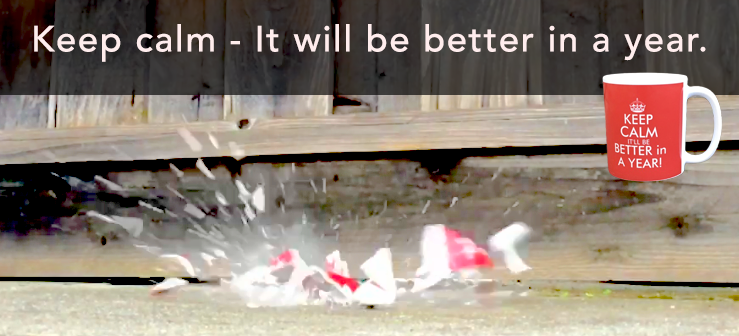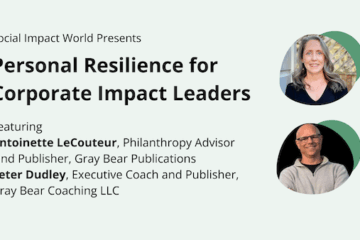Three exercises for personal resilience
Personal resilience is, I believe, one of the three top skills every person will need over the next decade. (My other top two are adaptability and the ability to discern truth.)
Personal resilience, generally speaking, is the ability to persevere through adversity or to bounce back after a setback.

Last week, Antoinette and I presented a webinar on personal resilience. Our main goals for this webinar were
- Frame personal resilience as more than just “self care”
- Give specific and relevant advice that attendees could put into action immediately
- Help people working in social impact roles
With about 40 years combined work in social impact, and having recently published a book on compassion fatigue, we have a lot to say about personal resilience and how it plays an important role in professional success.
The personal resilience webinar in a nutshell
Below I’ve listed the timestamps of the main segments of the webinar. You can watch the whole thing at the link above or on YouTube, or just in the embedded viewer below.
5:48 to 7:18 - Why compassion fatigue in a webinar on personal resilience?
7:18 to 8:02 - How is compassion fatigue different from burnout?
8:06 to 10:36 - Who experiences compassion fatigue?
10:41 to 11:22 - RELIT authors
11:42 to 13:14 - Who experiences compassion fatigue?
14:07 to 16:07 - How does compassion fatigue start?
14:19 to 17:24 - What does it mean to avoid/overcome it?
17:54 to 22:58 - Stories from RELIT
22:59 to 24:59 - Compassion fatigue in Social Impact roles
25:01 to 31:55 - 11 Ways to build personal resilience
31:56 to 35:54 - Three specific actions you can take
37:48 to 38:27 - A special offer for you (and your boss)
Thanks to Jeremy Brown of Social Impact World for putting on the webinar.
Three exercises for personal resilience
Here are the three specific actions for personal resilience that you can take today to begin forming habits to help with your own personal resilience.
1. Micro meditations every day
Take 15 seconds. Focus exclusively on observing something physical without judgment. It could be tactile, audio, visual, or your breathing. Do this 20, 40, 100 times a day, every day. It’s like constantly nudging your self-care steering wheel instead of going, going, going until you crash and need a long vacation to recover.
2. Consult your success jar
Many people have a gratitude jar; I recommend having a success jar, too. Put things you’re proud of, your accomplishments, and your successes in this jar. When you start to feel burned out or like you just can’t take any more, pull out a success from the jar and contemplate it for a while, perhaps journaling about it.
3. Gratitude reflection each night
Each night, before you go to sleep, ask yourself some version of, “What am I grateful for right now?” or “What is one good thing that happened today?” There is always an answer, even on the hardest days when it feels like everyone let you down, including you.
A special offer for you (and your boss, too)
If you’re reading this and are curious what it might be like to work with an elite executive coach, grab a half hour on my calendar. No cost, no obligation.
That offer also goes for your boss. Send them this post and tell them I told you to. Not because you think they need it (they do), but because you know everyone could use some help and guidance.
Download my chapter from RELIT

RELIT: How to Rekindle Yourself in the Darkness of Compassion Fatigue gives practical, relevant, actionable advice on avoiding and overcoming compassion fatigue and caregiver burnout. As a professional coach, I have to pay close attention to self-regulation and my own personal resilience. My chapter explains the things I do to stay centered and stay focused so I can give every client my best, every time.
Download my chapter for free: Show up. Try hard. Be nice.
Or just go buy the whole book. It’s worth it.


